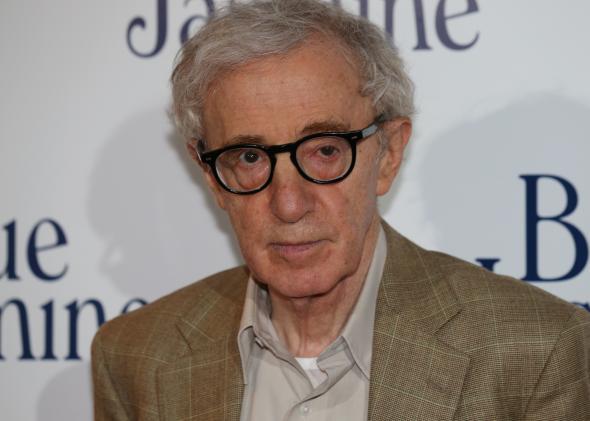Oh no. Here is a page that exists on IMDb, one that suggests that Woody Allen’s next movie is in the works for 2015. (The film critic Tasha Robinson pointed us to it on Twitter.) The untitled project lists Allen as both writer and director (though not star) and its tally of actors includes Emma Stone, Joaquin Phoenix, Jamie Blackley, and Parker Posey. The troubling part is the plot description: “On a small town college campus, a philosophy professor in existential crisis gives his life new purpose when he enters into a relationship with his student.” (An email and phone call to Allen’s publicist received no response.)
Not exactly new ground for Allen, whose 1979 drama Manhattan had the middle-aged auteur’s alter ego dating a teenager played by Mariel Hemingway. (The on-set make-out session with Allen was reportedly the 16-year-old actress’s first kiss.) And the new movie’s neurotic philosopher sounds like the latest in a long line of Allen stand-ins, from Alvy Singer in Annie Hall to Gabe Roth, another professor who dallies with a 21-year-old student as his marriage disintegrates. That film, Husbands and Wives, premiered as Allen was ending his relationship with Mia Farrow and kindling a new one with Farrow’s 22-year-old adoptive daughter, Soon-Yi Previn.
In the context of Dylan Farrow’s insistent claims, most recently in an essay in the New York Times, that Allen molested her when she was seven, this suggestion that Allen is defiantly returning to the topic of older men seducing or being seduced by much younger women feels stunning. (Allen has continued to deny the charges.) Maybe he places tremendous weight on his artistic prerogative, despite all the sensitivities involved. Maybe he just doesn’t think the sexual abuse allegations against him are a big deal. But the cultural climate has changed. In fiction as in life, we’re less likely to give lusty, nebbishy nervous wrecks a pass on their inappropriate infatuations—even if they feel really bad about them afterward.
Despite all the attention to Farrow’s claims against Allen, his movie Magic in the Moonlight came and went without much hand-wringing. Perhaps that gave him the confidence to continue to assert, perversely, that certain sexual relationships—between a professor and a student, say, or an adult and a high schooler—are richly ambiguous subjects for art rather than blindingly simple. I hope he changes his mind.
